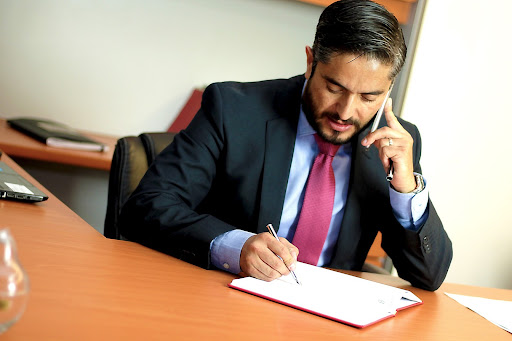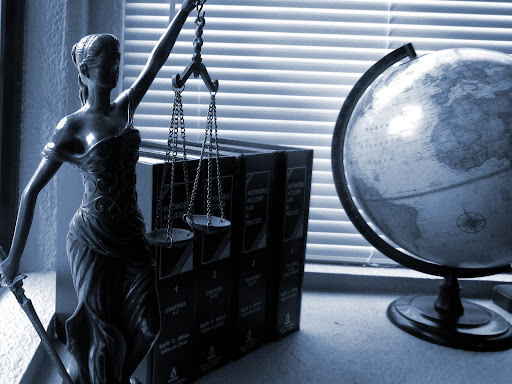The Cost of Not Seeking Legal Help After an Accident: Avoiding Long-Term Consequences
Accidents can have long-term consequences, not just for individuals and families affected at the moment but also for their financial security down the line. Seeking legal help after an accident is often essential to protect one’s rights and ensure a fair settlement. Failing to get proper legal advice could mean foregoing the compensation you are entitled to or not knowing the full extent of your entitlement. This article will discuss how seeking legal help will help you avoid long-term consequences. Let’s get started.
Understand Your Rights
Understanding your rights is the most important part of avoiding long-term consequences after an accident. This means understanding the statutes that govern auto accidents and other types of personal injury cases and what they require in terms of proof, damages, and legal procedures. Depending on the jurisdiction and specific case, this could include filing a lawsuit within a certain time frame, gathering evidence to support your claim, calculating damages, and more. Without a thorough understanding of these basic legal concepts, you could miss out on important benefits that could help you in the long run.
Get Professional Legal Advice
The next step is to seek professional legal advice from an experienced personal injury attorney who can provide personalized guidance. You can hire an injury lawyer to help you through the entire process, from understanding your legal rights and obligations to filing a personal injury lawsuit and negotiating an appropriate settlement. Having someone knowledgeable about the laws in your state and experienced in handling similar cases can give you added confidence that your interests are being looked after. When hiring a professional legal advisor, be sure to ask the right questions and find out what kind of experience they have in dealing with cases like yours. Ensure you understand their fee structure and other details related to their services. Finally, be sure to ask whether or not they are willing to work with you on a contingency basis, meaning that if you don’t get a settlement or award, you won’t have to pay them anything.
Know Your Legal Options
It’s important to understand that you don’t necessarily need to take your case to court in order to get compensation for an accident or injury. Depending on the severity of the incident and other factors, you may be able to negotiate a settlement with the other party or their insurance company. Knowing this option and understanding all of your legal rights can help you make an informed decision about how best to proceed after an accident or injury. In addition to understanding the pros and cons of going to court, you may also want to research other available legal remedies. These can include filing a personal injury claim, filing a civil lawsuit, or even seeking punitive damages. Each of these options comes with its own set of risks and rewards, so it’s important to fully understand each before making a decision.
Gather Enough Evidence to Prove Your Claim
If you don’t have enough evidence to prove your claim and the other party is unwilling to settle outside of court, then you may need to take your case to trial. In this scenario, you will need a variety of evidence that demonstrates fault, liability, and damages. This could include medical records, photos or videos of the accident scene, witness statements, and more. Your attorney can advise on what type of evidence is necessary to support your claim and how best to gather it. Depending on the circumstances, they may also be able to help you subpoena key documents or other records that could strengthen your case. Although the process of gathering and presenting evidence can be time-consuming, it’s worth it in the end if you have a chance to receive fair compensation for your losses. Make sure that you take the time to compile all of the necessary evidence so that you have a strong case and are ready for trial if needed.
Calculate Your Damages
Another important step in pursuing a personal injury case is calculating your damages. This can be a complicated process, as you need to determine both economic and non-economic losses. Economic damages refer to out-of-pocket costs such as medical bills, lost wages, property damage, and more that are directly related to the incident. Non-economic damages refer to losses such as physical pain and suffering, emotional distress, and other intangible losses that are not easily quantified. When calculating your damages, consider all of the ways in which you have been affected by the accident or injury. Your attorney can help you come up with an accurate estimate so that you receive fair compensation for all of your losses.
File a Claim on Time
You must ensure that you are filing your car accident claim on time, as each state has its statute of limitations for personal injury cases. Generally speaking, these statutes range from one to three years, depending on the jurisdiction and type of case. Make sure to contact a qualified attorney or legal advisor to confirm the deadline in your particular situation. Failing to file within the allotted time frame can significantly reduce your chances of receiving compensation, as the court may not allow your claim if it’s too late. Keep in mind that the statute of limitations clock starts ticking as soon as you suffer an injury or become aware of it, so you don’t want to wait too long to file a claim.
Develop a Winning Strategy

Finally, it’s important to develop a winning strategy for pursuing your case. This should include key elements such as identifying the right legal team, gathering evidence, negotiating a settlement, and preparing for trial if necessary. The goal is to create an overall plan that will help you achieve the best possible outcome for your case. Your legal team can be essential in helping you develop and execute a winning strategy for pursuing your case. Be sure to discuss all of the details with them so that you can work collaboratively towards achieving a successful outcome. For instance, they may be able to provide valuable insights into the best ways to negotiate with the other party or prepare for court. As you can see, there are many important steps involved in pursuing a personal injury claim. From gathering evidence to calculating damages to a filing on time, it’s essential that you take the necessary steps to create and execute a winning strategy. With the help of your legal team, you can work together to develop an effective plan for achieving a favorable outcome.
